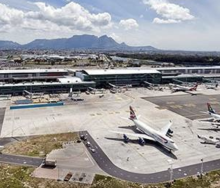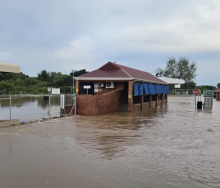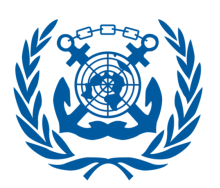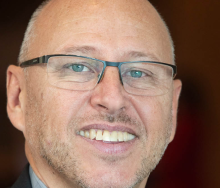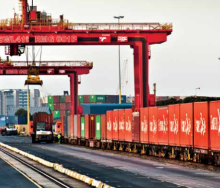Corridor cargo has been earmarked as a key area of activity for Africa Global Logistics (AGL), freight executive Koen Rombouts said following last week’s much-anticipated reveal of the new brand.
Rombouts, who is the managing director of AGL’s Southern Africa Cluster and has been with Bolloré Africa Logistics since 1999, knows a thing or two about corridors.
Speaking exclusively to Freight News in the wake of the name change from one entity to the other, Rombouts said corridors from Walvis Bay all the way around the Cape to Dar es Salaam will be instrumental in AGL’s objective to ramp up volume on behalf of its relatively new owner, Mediterranean Shipping Company (MSC).
Bringing this into the context of a new brand identity, he said, “We’re still the same focused team who, along with MSC, are keen to move volumes as effectively as possible from all the different ports into the hinterland.
“Being Africa-focused means, we strongly believe in the future of the whole continent and what we can achieve here.”
Well-experienced in working corridors from ports like Djibouti into Kenya, Ethiopia and Uganda, and currently based in South Africa for the last seven years, Rombouts said that although cargo from the Copperbelt is a primary focal point for AGL, it is certainly not their only operational objective.
“We’re involved in a number of different areas apart from copper mining in Zambia and the Democratic Republic of the Congo. We have a big focus on the Eacop project (East African Crude Oil Pipeline) and the lithium mines that are coming up in Zimbabwe.”
The latter, especially, Rombouts said, “could be a game changer.
“That’s why we’re not isolating any port or corridor over another. The whole of Southern Africa is an important contributor.”
However, with MSC subsidiary Terminal Investment Limited soon taking over operations in Namibia’s primary port, it stands to reason that Africa’s biggest logistics operator could be looking at ramped-up cargo on the Walvis Bay-Ndola-Lubumbashi Development Corridor.




